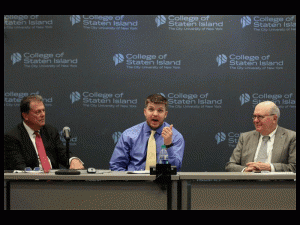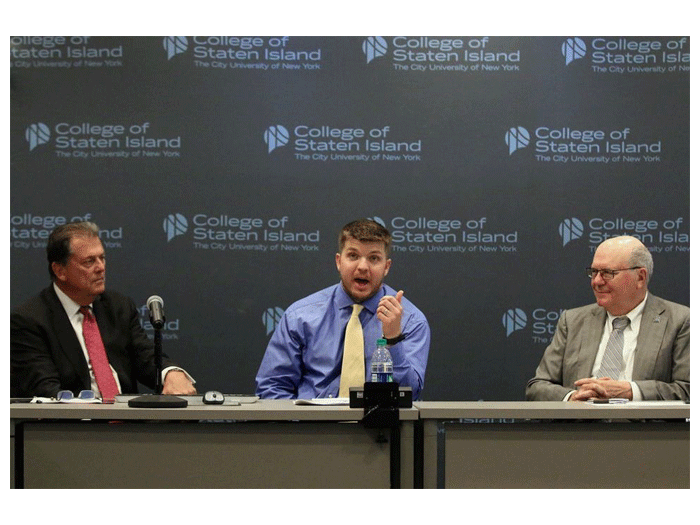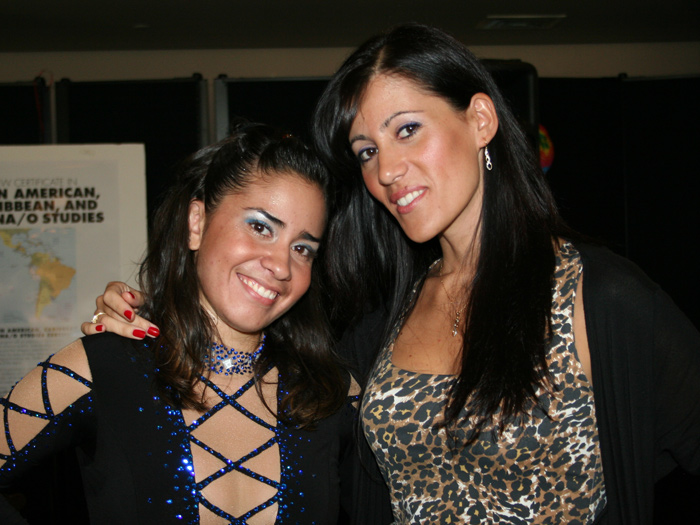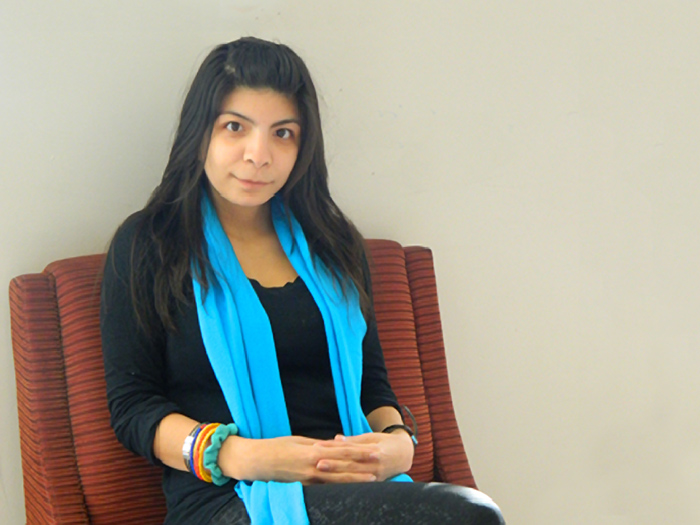
From left to right: Staten Island Advance Editor Brian J. Laline, Army Major Danny Sjursen, and CSI President William J. Fritz at the CSI forum. (Photo Courtesy of SI Advance/ Jan Somma-Hammel
STATEN ISLAND ADVANCE — Hot-button issues of race and intolerance on Staten Island — often referred to as the borough’s “silent problem” — got an airing Thursday at a forum hosted by the Staten Island Advance and the College of Staten Island at CSI’s Willowbrook campus.
The forum was spurred by a recent Advance/SILive article penned by Army Maj. Danny Sjursen, who grew up in Midland Beach, in which he shared his research and reflections on the issue. The article drew an unprecedented number of comments from readers.
Sjursen, the featured speaker at the forum, reviewed his research and sought comments from the audience of about 40 invited guests, who included two former borough presidents, Ralph Lamberti and James Molinaro, a retired family court judge and Advance columnist Daniel Leddy. CSI President Dr. William Fritz welcomed guests. The forum was moderated by Advance Editor Brian J. Laline.
Sjursen, who titled his research paper “Apartheid in New York,” said the “gravity and persistence” of racism and intolerance on Staten Island warrants the title. “It’s a larger issue than we think,” he said.
Intolerance and racism took off with the opening of the Verrazano-Narrows Bridge in 1964, he said.
“Most Staten Islanders did not want intergration when the bridge opened,” Sjursen said. “We demonized newcomers as a dangerous ‘other’ and placed the onus for all of Staten Island’s problems on these newcomers.” Many in the room nodded in agreement.
The two-hour discussion touched on examples of bias and discrimination in policing, and in housing and education, with most in the room agreeing that discussing and acknowledging the problems was a start.
Ed Josey, president of the Staten Island NAACP, who grew up in Tottenville, said he never had a black teacher in school at PS 1, Totten Intermediate School or Tottenville High School, and little has changed. “But, if we do not admit there is segregation and racism on Staten Island, we will never straighten it out,” he said.
“There is an underlying attitude on Staten Island, that still exists, that makes a lot of people on Staten Island uncomfortable,” said CSI staffer Alana Gaymon.
“It comes down to us as humans, and how we want to see ourselves in 20 years,” said CSI student Akeem James. “The conversation needs to start with us as individuals.”
Molinaro, who called racism and intolerance “a national problem,” said Staten Island families, “have to step up and train their children” to be more tolerant.
Both Laline and Fritz said they would continue the dialogue on racism and intolerance.
“It is my hope we can continue meeting and talking,” Fritz said. “Meeting and talking is the first step to change.”
This article by Diane Lore was first published July 20, 2017 on www.silive.com. It is reprinted here with permission.


![[gallery] Graduating Vets Honored](https://csitoday.com/wp-content/uploads/2012/05/Veterans_Recognition_Luncheon_5_30_2012.jpg)














